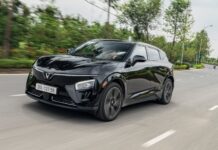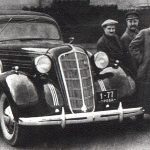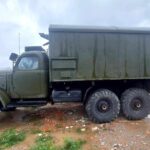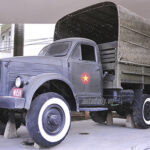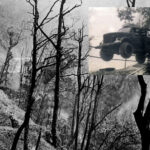The Zil 157, with its slogan “No road? No problem!”, proved its mettle during the Vietnam War, contributing to the great victory of the spring of 1975. Its incredible achievements in overcoming thousands of kilometers of treacherous terrain from the land of the great Lenin to the green forests and deep mountains of the Vietnam-Laos border are unmatched.
As Vietnamese people, we deeply understand the value of the victory in 1975. We appreciate the tireless efforts of the logistics soldiers who worked day and night, providing crucial supplies to the soldiers on the battlefield. We also express our gratitude to the friends who sent these precious vehicles to replace the historic bicycles of Dien Bien Phu.

When reading Lê L?u’s novel “M? r?ng,” we can truly appreciate the dedication of the drivers who supported the frontlines. They faced numerous challenges, including burned roads and the loss of dozens or even hundreds of trucks in a single night. The supply of vehicles from the Soviet Union and China played a crucial role in our operations.

Initially, the Zil (Din), Gát (Gaz), H?ng Hà (Honghe), and Gi?i Phóng (Jiefang) were the one-bridge vehicles used. However, as the roads were severely damaged, the appearance of the Zil 157 or Din 3-bridge vehicle was a significant event. This remarkable vehicle quickly became a hero on the Ho Chi Minh Trail.

Produced at the Likhachop Automobile Factory, the Zil-157 was designed to replace the Studebaker US6, the main transport vehicle in the Soviet Union’s army at the time.
After years of development, the Zil 157 was unveiled in 1958 and won the “Grand Prix” at the Brussels International Auto Exhibition. People initially mistook it for a copy of the Studebaker US6, but it was a unique design.
The Zil 157 served as a strategic truck for the Soviet Union’s army and was also equipped with Cachiusa racks to replace the Studebaker US6. While the Zis 5 trucks originally carried the Cachiusa racks, they were gradually replaced by the Studebaker US6 until the new Zil 157 appeared.


The Zil 157 truly impressed Soviet car manufacturers with its hydraulic steering and 6×6 six-axle drive — features that Russian cars at the time could only dream of. The Studebaker US6 had perfectly synchronized brakes on all wheels, while the Zis 5 only had rear-wheel drive brakes.

Due to the wartime conditions, the Zil 157 couldn’t be mass-produced as it required numerous changes. However, the Likhachop Automobile Factory was able to produce an improved version, the Zil 157, which showcased design improvements to enhance maneuverability. The vehicle featured wider axles and “pine branch” type off-road tires. Additionally, the Zil 157 had a device to automatically adjust tire pressure according to the terrain, a revolutionary feature at the time.

The factory produced several versions of the Zil 157 from 1958 to 1964. It was later replaced by the more powerful Zil 131 in the Soviet army. Despite being designed as a 3-ton truck, the Zil 157 surpassed expectations and proved to be a versatile off-road vehicle capable of pulling trailers to increase its load capacity on good roads.

In the 1950s, the Soviet Union supported China in developing its automotive industry. A version known as the “Chinese Zil 157” or “Gi?i Phóng CA 30” was produced at the “First Automobile Works” (FAW) factory. Both versions were provided to Vietnam, and due to their similarity, they could be used interchangeably with accessible spare parts.


During the nationwide celebration of the liberation day, you can witness the legacy of the Zil 157 by visiting the Vietnam People’s Army Ordnance Museum in Hanoi.
The Zil 157 vehicles demonstrated exceptional resilience during transportation. The soldiers in the Vietnam People’s Army ingeniously crafted additional supports made of bamboo and thatch to camouflage and protect their vehicles from enemy bombs and bullets. After enduring arduous journeys, including traversing mountains and rivers, and navigating underground tunnels amid rain and gunfire, the Zil 157 vehicles remain as a testament to their unwavering durability. They stand as the “wildlife heroes” of the Vietnam War.
By Th? Ð?t (TTTÐ)
Illustrations: Lê Th?ng
Source: Phuongnn/Diendannuocnga
ZIS-101 – The First Luxury Car of the Soviet Union
Join us on a food journey like no other as we navigate the bustling streets, bustling markets, and bustling stalls of Saigon. Immerse yourself in the sights, sounds, and smells of Vietnam as you taste your way through the city’s culinary delights. Whether you’re a food lover, a history buff, or a curious traveler, our food tours are sure to leave you with a satisfied palate and a deeper appreciation for Vietnamese cuisine.
Zil 157 – The Heroic Vehicle on Truong Son Road
“No road? No problem!”, Zil 157 has conquered thousands of miles from the land of the great Lenin to the lush forests and towering mountains of the Vietnam-Laos border, contributing to the glorious victory of the spring of 1975 with such a slogan. Perhaps since its inception, the greatest achievements are attributed to this remarkable vehicle during the Vietnam War.



